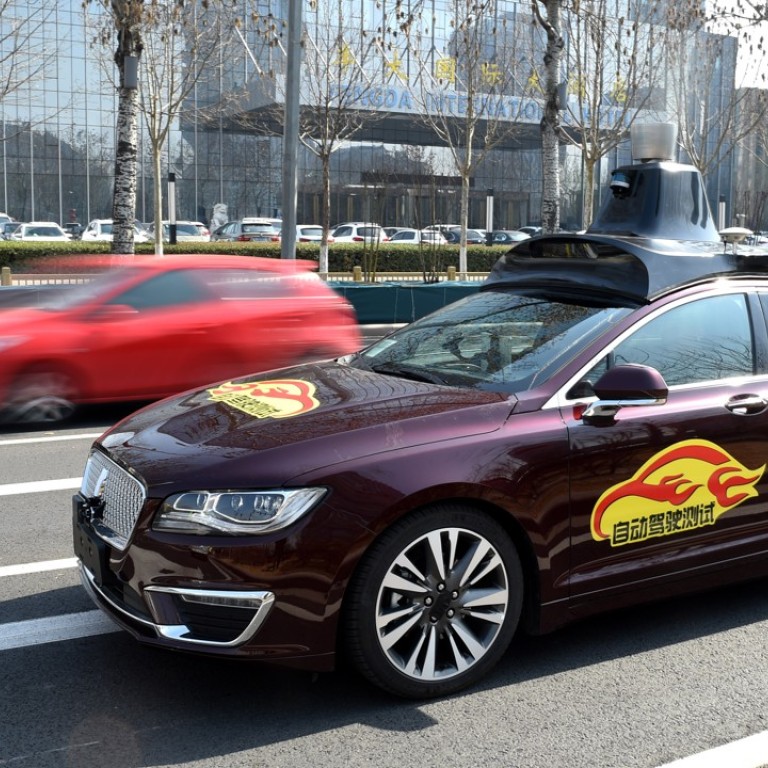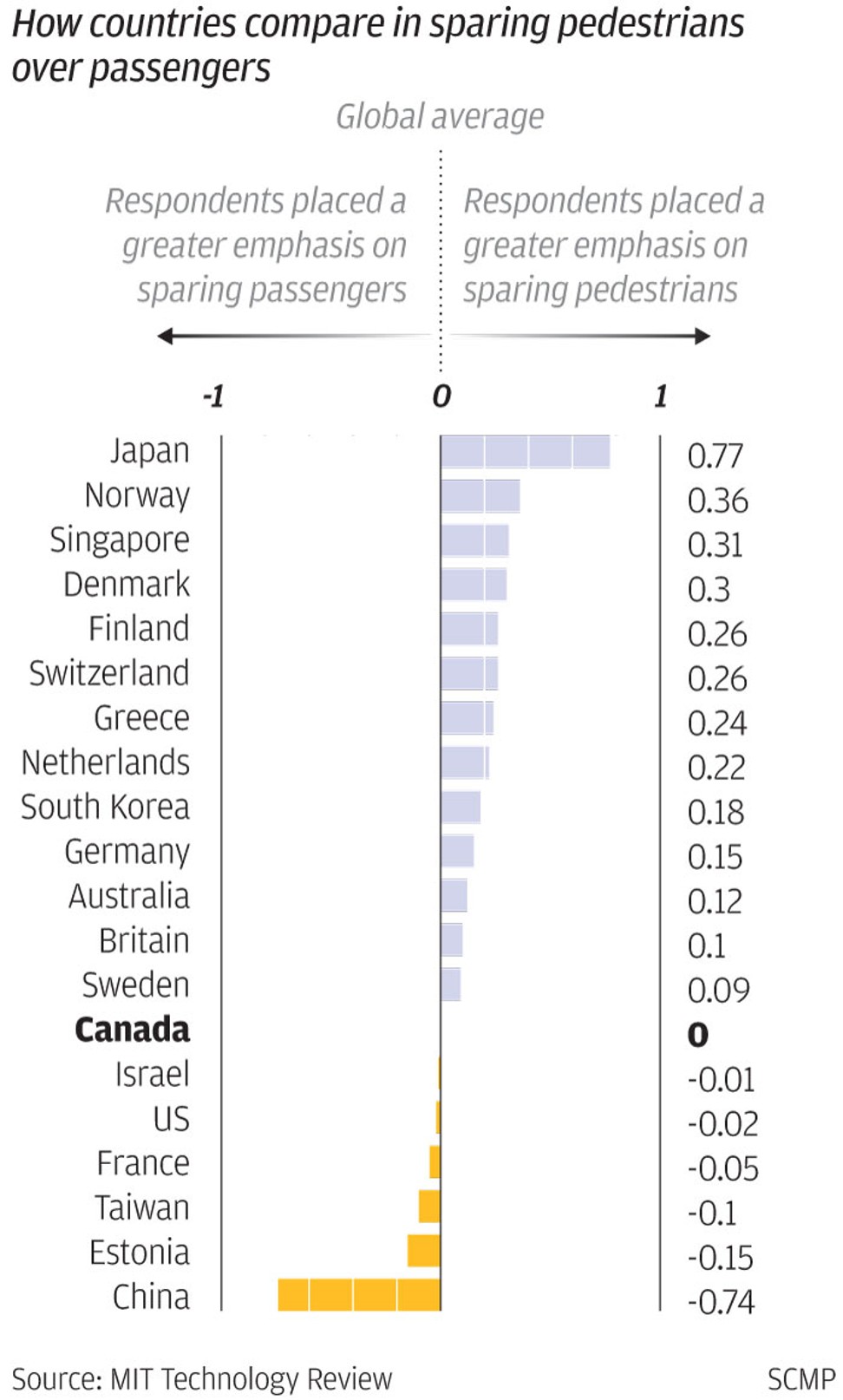
Chinese prefer killing pedestrians over passengers when autonomous cars fail
- The findings of an MIT Media Lab study show consumers, manufacturers and policymakers need to discuss the ethical principles to be programmed into self-driving vehicles
Chinese using autonomous vehicles are likely to choose hitting pedestrians on the street rather than endangering their passengers, according to a global study initiated by the research laboratory at the Massachusetts Institute of Technology (MIT).
The same research also found that Chinese are likely to spare the old over the young in any mishap with their self-driving vehicles.
Those results were gathered from one of the largest studies ever done on global moral preferences, an experiment called the “Moral Machine”, according to a report published on Thursday by the MIT Technology Review.
It said the MIT Media Lab created a game-like online platform in 2014 to crowdsource people’s decisions on how autonomous vehicles should prioritise lives in variations of the classic “trolley problem” – concerning which lives could be saved by a person with some control over a metaphorical runaway trolley.

Researchers at the MIT Media Lab took that idea to test nine different comparisons shown to polarise people, according to the Review. These included choices of a self-driving vehicle to prioritise humans over pets, passengers over pedestrians, more lives over fewer, women over men, young over old and fit over sickly.
The experiment generated 39.6 million decisions in 10 languages, which were gathered from millions of people in 233 countries and territories, and an analysis of that data was presented in a new paper published by the British scientific journal Nature.
“We used the trolley problem because it’s a very good way to collect this data, but we hope the discussion of ethics don’t stay within that theme,” Edmond Awad, an author of the paper, said in the report. “The discussion should move to risk analysis – about who is at more risk or less risk – instead of saying who’s going to die or not, and also about how bias is happening.”
The MIT Media Lab study has come amid the rapid development and implementation of artificial intelligence (AI) technologies around the world, which has raised concerns about how machines should solve moral dilemmas.
The decisions about the ethical principles that will guide the AI behind autonomous vehicles cannot be left solely in the hands of engineers or ethicists, according to the researchers. That is why consumers and the wider public will need to understand those principles programmed into self-driving vehicles.
Compared with Chinese, the Moral Machine study found Japanese using autonomous cars are likely to spare the lives of pedestrians over passengers. But like the Chinese, Japanese were also found to likely spare the old over the young in mishaps with their driverless cars.
By comparison, the French, Greek and Canadian users of autonomous cars are more likely to spare the young over the old, according to the study.
It also found autonomous car users from France, Israel and the UK are likely to place more emphasis on sparing more lives, compared with those from Japan, China and South Korea.
Those results represented what researchers called a clustering pattern, which suggests that geographical and cultural proximity may allow groups of territories to have shared preferences for machine ethics.
Japan, China and South Korea belong to the so-called Eastern cluster, which belong to the Confucianist cultural group. This cluster also includes Islamic countries.
The so-called Western cluster includes North America as well as many European countries with Protestant, Catholic and Orthodox Christian groups. A third group, the Southern cluster, includes the countries in Central and South America.
The MIT Media Lab researchers expect the results of their experiment will help drive a global conversation to express the preferences to companies designing the AI behind autonomous vehicles and the government policymakers that will regulate these machines.
Such conversations will need to be pursued in China, as the country’s booming car industry has attracted both traditional carmakers and hi-tech companies. Chinese internet giants Baidu, Tencent Holdings and Alibaba Group Holding, the parent company of the South China Morning Post, have already started road tests on the mainland for their autonomous vehicles.
That underscores China’s efforts to gain leadership in developing next-generation cars with autonomous driving technology and internet connectivity. One in every two new cars sold in the country will be equipped with smart and at least partial autonomous functions by 2020, according to guidelines set by the National Development and Reform Commission, the country’s powerful planning agency, earlier this year.
A McKinsey report in April forecast autonomous vehicles to account for 13 per cent of passenger kilometres travelled in China by 2030 and rise to 66 per cent by 2040. It expected the number of self-driving cars in the domestic market will reach 8 million by 2030 and 13.5 million in 2040.

